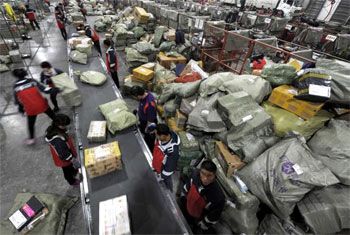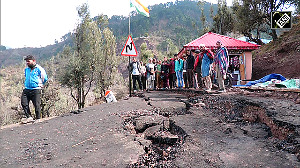 Unlike their other offline retail counterparts, the Information and Communications Technology (ICT) retailers are training their guns on manufacturers instead of e-commerce players.
Unlike their other offline retail counterparts, the Information and Communications Technology (ICT) retailers are training their guns on manufacturers instead of e-commerce players.
As part of their protest against IT and mobile phone manufacturers over alleged disparity in pricing in favour of e-commerce players, members of the Federation of Information Technology Associations of Gujarat (FITAG) have threatened to go on indefinite strike from November 17.
Offline ICT retailers through relevant industry bodies like FITAG and Ahmedabad Computers Manufacturers Association (ACMA), have written to manufacturers for bringing in pricing parity between the former and e-commerce players like Flipkart, Amazon and Snapdeal, among others.
Earlier, seeking a level playing field to do business in the country, the Confederation of All India Traders (CAIT), the apex body of traders in the country, will organise nationwide protests on October 31 in more than 150 places across the country demanding investigation into business modules of e-commerce platforms and their pricing mechanism and constitution of a regulatory authority to regulate and monitor e-commerce business in India.
FITAG, which is the nodal body for 25 IT industry associations in Gujarat, claimed that ICT products manufacturers allow e-commerce players to sell products at 30 per cent lesser than the market operating price (MOP) that offline retailers are forced to sell at.
What's more, in order to counter the growing penetration of e-commerce portals, the ICT industry in Gujarat is also mulling initiation of its own portal for selling products.

According to Gaurang Vyas, president of FITAG, with the growing popularity of e-commerce players, annual sales of ICT products through offline retailers have fallen in Gujarat from Rs 15000-16000 crore (Rs 150-Rs 160 billion) to Rs 8000-10000 crore (Rs 80-Rs 100 billion) in recent times.
This has led to a loss of value added tax (VAT) worth Rs 150 crore (Rs 1.50 billion) to the state government, said Vyas.
"We have written to all ICT products manufacturers including LG, Samsung and Dell, among others to ensure products are sold at the same MOP by both e-commerce players and offline retailers as well as bring in clarity over state specific taxes levied on products," Vyas added.
Kaushik Pandya, founder president of FITAG claimed that in case of mobile the VAT applicable in the state are 15 per cent, but these portals do not show separate tax in their bills having no clarity that they are paying taxes or not.
But this will reduce the cost of the product by 15 per cent.

Due to the such practices by e-commerce portals, local retailers have lost about 50 per cent of turnover i.e. about Rs Rs 4000 to 5000 crore (Rs 40-50 billion) of business annually against e-commerce portals.
"Overall e-commerce market is expected to reach Rs 1,07,800 crore by the year 2015 with both online travel and electronics (IT) contributing equally.
Another big segment in e-commerce is mobile/DTH recharge with nearly one million transactions daily by operator websites.
This means almost 50 per cent of the business generated by these e-commerce portals are from ICT products. i.e. computer, laptops, tablets, mobiles and relevant accessories.
These products are sold at a discount of maximum 30 per cent then their MRP," Vyas added. Meanwhile, offline retailers will be making representations to district collector, Department of Science and Technology (DST) secretary, sales tax commissioner, finance secretary, industries and mines secretary and eventually to CMO in Gujarat government.
"The state government is also losing on VAT due to such pricing disparity between offline retailers and e-commerce players. Hence, we will be requesting the state government and its various authorities to look in to the matter and stop further penetration of e-commerce portals with the help of Ministry of Science and Technology. Moreover, it is being requested to introduce entry tax on all the products which are entering the state and billed by e-commerce portals as well as carry out a state level campaign to educate buyers to not to buy products through e-commerce portals and instead buy it from local dealers," said Vyas.











 © 2025
© 2025